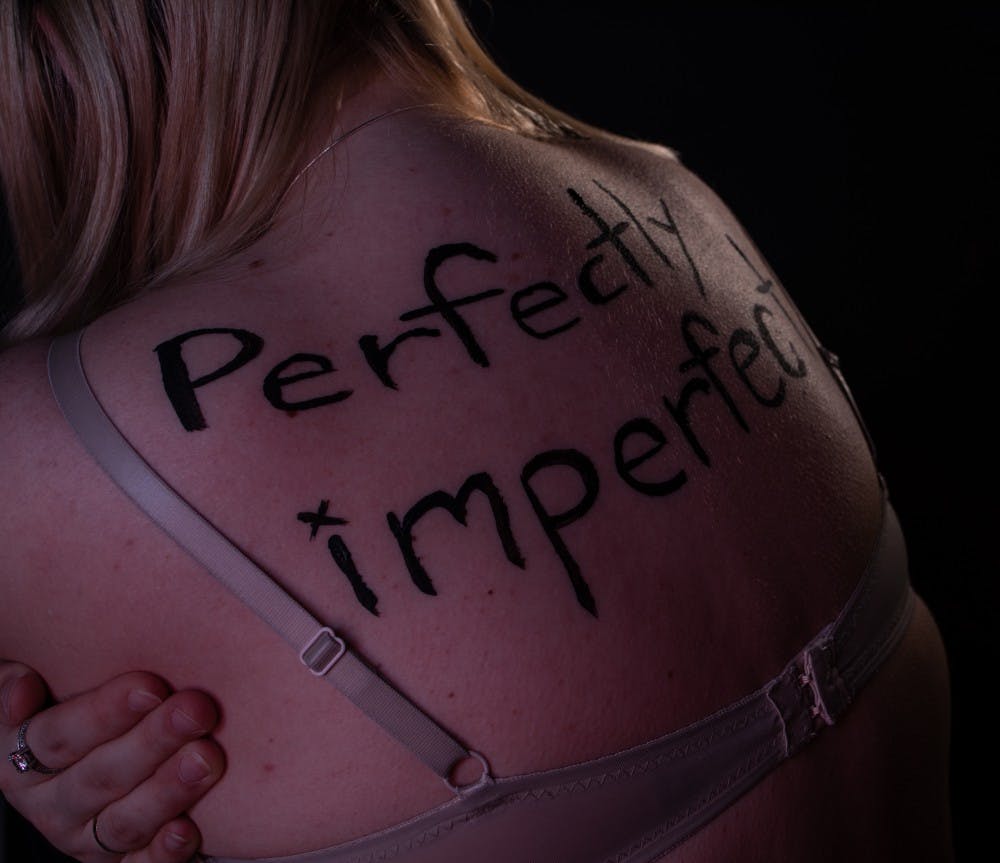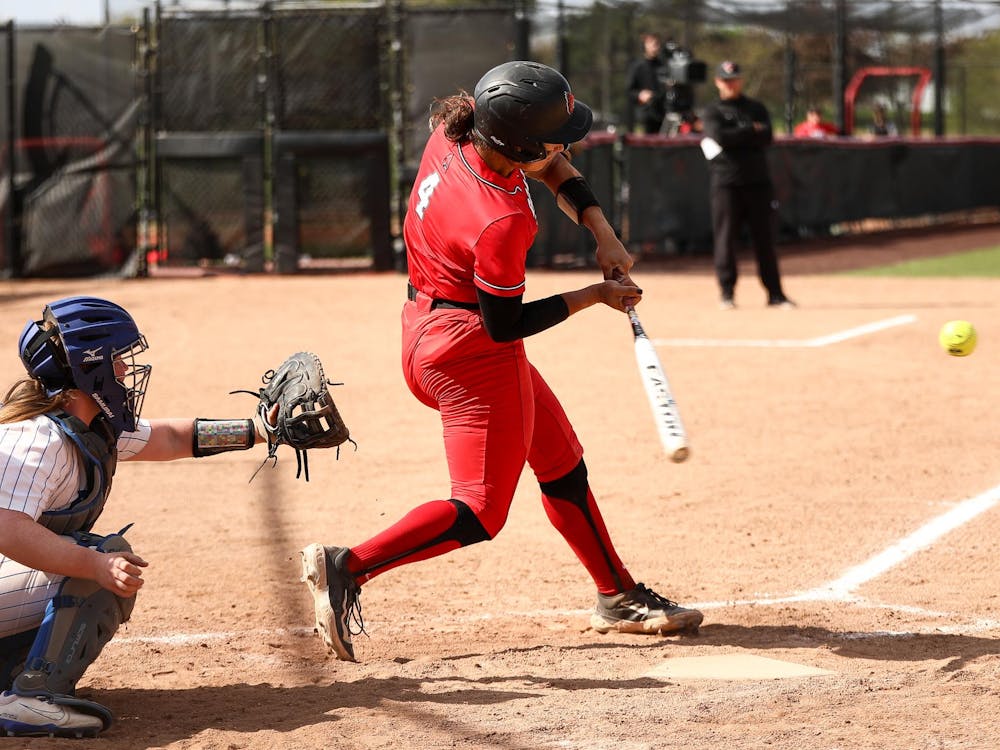
Sophie Nulph is a freshman journalism major and writes “Open-Minded” for The Daily News. Her views do not necessarily agree with those of the newspaper. Write to Sophie at smnulph@bsu.edu.
I have experienced both fat and skinny shaming, and both are equally damaging.
Whether it has to do with fat shaming or skinny shaming, I know I am not alone. According to bullyingstatistics.org, 94 percent of teenage girls have experienced some form of body shaming. When I think of body shaming, my mind automatically goes to fat shaming. The lesser known fact, though, is how real skinny shaming is in our “thick is sexy” society.
Growing up, my body mass index (BMI) always classified me as an overweight child when, truthfully, I was really just muscular. The flaw with BMI readings is that it divides your weight by your height. A BMI between 18.5 and 24.99 is considered “normal weight” by the National Heart, Lung and Blood Institute (NHLBI). Nowhere in that formula does it calculate muscle mass into the equation.
You can be perfectly healthy and still be considered “overweight” on the BMI scale. According to a study done by the International Journal of Obesity in 2016, almost half of the individuals studied who were considered overweight by BMI were actually “metabolically healthy.”
I was one of those people. I was made fun of for how I couldn’t fit into my friend's clothes and how I looked like a rock. I used to be called “bulldozer” on my soccer team.
The bus was my worst enemy. I would do everything I could to be invisible, but people would find me and tease me. Nothing was worse than the people I saw every day laughing at the way I looked, prank calling me on the bus or asking me why I was so big.
Some people would discriminate against me without even knowing. Friends and teachers at school would call me “chunky” or say that I “still had some baby fat.” I would always nod along, laughing as they did. They didn’t know I was insecure, that I would cry in the dressing rooms of stores because I couldn’t fit into regular clothes.
I was treated differently by adults too. They were never as nice to me as they were to my sister. She was always referred to as “the model” and “Barbie” because she is 5-foot-10 and skinnier than a stick. I wanted nothing more than to look as beautiful and thin as her.
All of this sent me into a depression so intense it lasted years, leaving many insecurities I still deal with to this day.
The summer going into my sophomore year of high school, I was fed up with feeling bad about myself. I thought the only way I could look pretty was to be skinny. That was the only way I could make friends, or meet boys.
So, I lost 60 pounds in about four months.
I decided the quickest way to lose weight was to not eat. I would eat one meal a day or sometimes not eat at all. I would go on daily runs around the neighborhood to burn the calories I did eat. I was obsessed with seeing my progress.
I was gaining confidence fast. I couldn’t help but beam when my pants would not fit me anymore or when I felt comfortable enough to wear crop tops in public.
It was like I became visible for the first time in my life. People would compliment me, my outfits and body. I remember one girl a grade under me came up to me and complimented my cheek bones. She loved how high they are and the way they curved into my face, making it look chiseled.
I thanked her and moved on, but all I could think was “you have no idea what it took to make them look this way.”
The weight loss process felt so bad yet so good.
Boys were paying attention to me for the first time ever. I went boy crazy. Looking back, I had no idea how to deal with all the attention.
These feelings did not last though.
The weight loss took a toll on not only my physical health but my mental health as well. I was constantly tired and too weak to lift even simple objects like a wet mop at work. I would come home from school, take a two-hour nap, go to work, come home and go to bed by 10 p.m., asking myself why I couldn’t move.
My mental health was deteriorating just as quickly as my body fat and muscle. I could not go a day without crying and constantly comparing myself to the people I wanted to look like. I would often get comments asking me why I was so thin. That I looked unhealthy. That I need to eat more. That I looked gross.
I just didn’t understand. People told me to stop eating for so long and when I did, they still told me I looked gross. They found new things to make fun of, like the bags under my eyes, my swollen eyes from constant crying, my hip bones and hair.
I later learned that my older sister, the “model” and “Barbie,” was made fun of too.
Because of her beauty and blond hair, she was presumed to be dumb by everyone around her. People asked if she was sick or had a condition because of the way her fast metabolism would make her look. She couldn’t walk into a room of new people without someone telling her to eat a cheeseburger.
The girl I looked up to my entire life, who I wanted to be exactly like, had insecurities just like me. Hearing her story as I struggled with my own weight problem years later showed me just how much people want what they can’t have. There will always be someone craving the parts of your body you despise.
Reflecting now, the fact that I had to stop eating to gain confidence in my body image is one of the scariest thoughts to me. I learned in the most difficult way that people are going to try to tear you down no matter how you look. I learned this lesson through an eating disorder paired with crippling depression and a need for attention.
To tell someone who can’t gain weight to eat a cheeseburger is parallel to telling someone who struggles with losing weight to stop eating.
After all of these struggles and lessons, I still have a hard time looking in the mirror and seeing something beautiful.
To anyone else that has ever been shamed, here is some advice: You have to stop listening to others’ opinions of you and stop comparing yourself to others. I am still learning how to love my body after all this time, and it is still an issue I struggle with daily.
After all, body image is not how people see you. It is how you see yourself.





